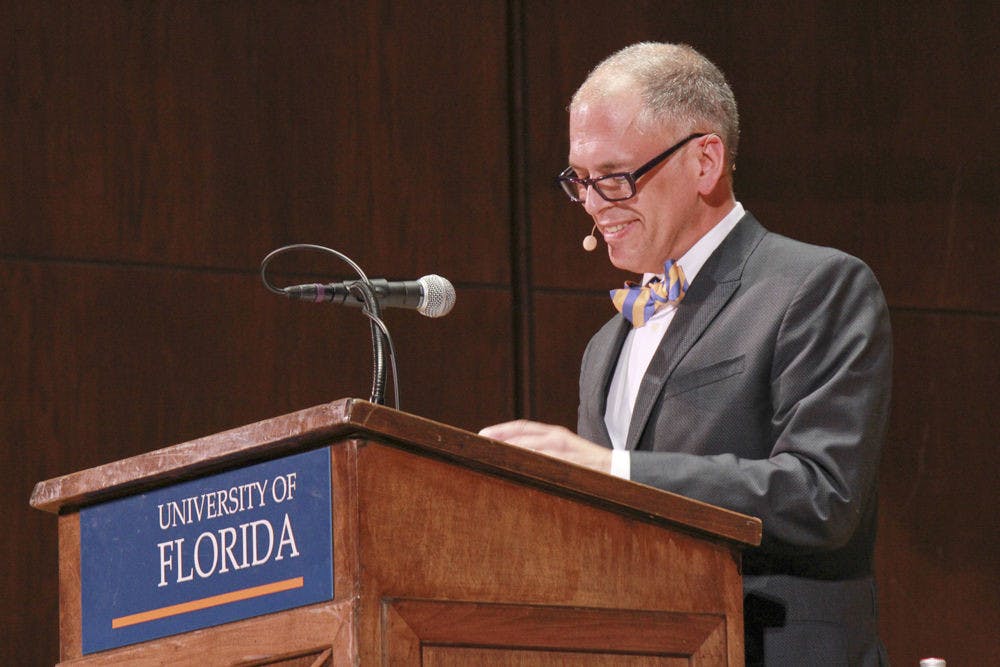Jim Obergefell didn’t fall in love at first sight, but instead on the third.
On Wednesday night, Obergefell, the lead plaintiff of the Supreme Court case that made same-sex marriage legal across the country, told students in the University Auditorium that the third time he met his husband, John Arthur, he realized he was interested in him romantically.
He was paid about $20,000 to speak at UF. He told his story to an audience of about 500, saying his world was turned upside down when he discovered Arthur had amyotrophic lateral sclerosis in 2011. By 2013, Arthur was in hospice care for the terminally ill, had lost the ability to walk and could barely speak.
Obergefell said while caring for Arthur, he asked himself three questions: What do I stand for? What’s important to me? What am I willing to fight for?
When the Supreme Court struck down the Defense of Marriage act in 2013, Obergefell said he kissed Arthur and said, "Let’s get married."
But the couple couldn’t get married in their home state, Ohio, Obergefell said. His friends and family funded a $13,000 chartered medical jet so he and Arthur could fly to Maryland to wed.
They were married on the airport tarmac minutes after they landed, he said.
"It was the happiest moment of my life," he said.
Arthur died three months after the wedding, Obergefell said. Obergefell’s request to be listed as Arthur’s surviving spouse on his death certificate was what brought him to the Supreme Court.
When Justice Anthony Kennedy read the decision of the court June 26, the tears began to flow, he said. He didn’t listen to a single word of the dissent.
"I felt more of an American than I ever had," he said.
He told the audience he considers himself an "accidental activist," and the fight for LGBTQ+ rights is far from over.
He said job discrimination against LGBTQ+ individuals is still prevalent in the U.S., and people need to be educated on transgender issues.
"That’s something worth fighting for," he said.
UF’s Assistant Vice President of Student Affairs Mary Kay Carodine said she went to high school with Obergefell. She thought his speech was moving.
"For me, it shows that hopefully everyone thinks deeply about the purpose of their life," she said.
UF public health senior Arielle Konen said she was anxious to see Obergefell speak because marriage equality is a small part of the LGBTQ+ movement. She said she was happy to see he talked about gay people of color and transgender issues.
"I thought it was pretty powerful to see that one’s own personal story can be blown up to be the figurehead of an entire movement," the 21-year-old said.
Contact Alexandra Fernandez at afernandez@alligator.org and follow her on Twitter @alexmfern
Jim Obergefell smiles after retelling his experience in the federal marriage equality court case Obergefell v. Hodges to an audience in the university auditorium on Oct. 14, 2015. Obergefell, the lead plaintiff in the case, remembered ignoring the dissenting opinion when the Supreme Court ruled in his favor.






